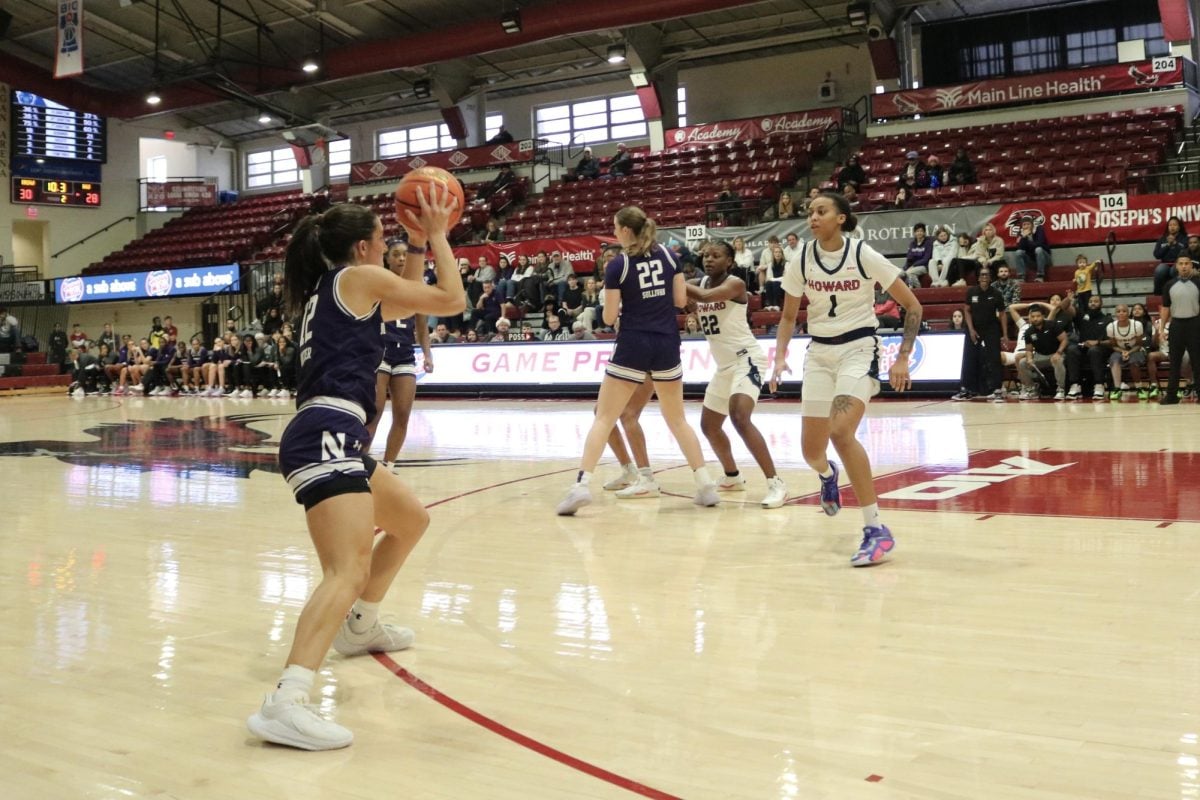The Winter Olympics kicked off in Vancouver Friday and, as always, was bursting with storylines. Nodar Kumaritashvili died after crashing on the luge track, Canada searched for its first gold medal on home soil, and Shaun “The Flying Tomato” White looked to stay on top of the snowboarding world.
Team USA is off to a strong start with eight total medals, most coming in skiing and speed skating. But the U.S. has failed to earn a medal in the sport that intrigues me the most.
I’m talking about the biathlon.
The biathlon is a combination of cross-country skiing and rifle shooting-the name of the sport comes from the Greek word meaning “two tests.” The competitors ski in typical cross-country fashion until they reach a shooting range, where they exchange their ski poles for a rifle.
That’s where the fun begins.
For starters, athletes have to shoot standing up as well as lying down in the prone position. The sizes of the plates, which are lined up in a straight row, vary depending on the shooting style. As was the case over the weekend, the elements also play a major role in the outcome. The athletes can practice all they want, but in the middle of a blizzard, they might as well be shooting in the dark.
Then comes the best part. Miss a target, and get hit with a penalty of one minute of added time or an extra 150-meter ski loop. With the goal of finishing the circuit in the shortest time, the shooting range is where medals are won and lost.
The Olympics are known to have some bizarre sports: table tennis and handball in the summer and curling in the winter. To have a sport that blatantly penalizes athletes for missing tiny targets may be strange, but it makes for great drama.
Imagine if more sports implemented penalties. Miss a free throw in basketball? Do 20 chin-ups on the rim. Commit an error in baseball? Good luck playing without a glove for the rest of the game. Shank a field goal in football? The kicker has to play on the defensive line on the following play. The possibilities are endless.
Moreover the sheer unpredictability of the sport is incredible. U.S. biathlete Tim Burke called the event “the most unfair competition I’ve ever raced in.” The only competitors who stood a chance at winning were those who started prior to the blizzard. In an era of sports dominated by superstar athletes, it’s refreshing to see a sport where unknowns fight for glory.
The biathlon is emblematic of what the Olympics are all about. These athletes compete in sports that no one cares about until their 15 minutes of fame once every four years. Apollo Anton Ohno was lucky enough to bask in the spotlight twice thanks to his fancy footwork on “Dancing with the Stars.”
There’s no tip-toeing around it: The Olympic Games can often get tedious, with NBC sprinking in fluffy feature pieces at every opportunity between events. Yet it is wacky events like the biathlon that make the games entertaining, and remind us athleticism and skill come in all forms, including .22-calibre rifle bullets shot at 45 millimeter targets.Sports Editor Brian Chappatta is a Medill junior. He can be reached at [email protected]






